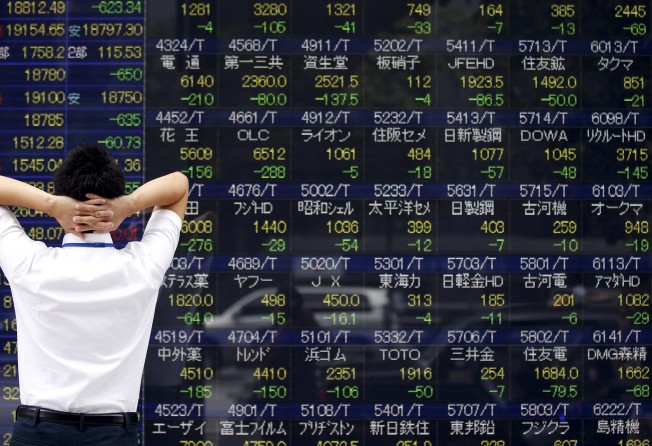Stock pickers beware: the bull run is ending and it’s time to hew back to the benchmark indices
The bull run is facing a great many challenges and so a bit of profit taking might be timely.

Life for equity investors has recently been, or should have been, simple. All they needed to do was put money into exchange-traded funds (ETFs), and not only would they perform better than managed funds, but do so at a fraction of the cost.
However, in the first half of this year, the reassuring world of passively tracking indices has been shaken by the re-emergence of fund managers beating the indices, something that has not really happened since 2007. We’ll be coming back to that date later, for obvious reasons.
Meanwhile, research by Bank of America’s analyst Savita Subramanian shows that 54 per cent of fund managers managed to outperform their benchmarks in the first half. This contrasts with 93 per cent of managers underperforming these same benchmarks from 2103 to 2016. Assuming that this level of outperformance continues to the year-end, it will represent the best result for active managers in the last 10 years.
What is known as stock correlation has shrunk to the lowest level since 2001 for the counters represented on the S&P 500. In other words, stocks (and as it happens, other asset classes) are no longer moving in tandem the way they were. Thus, stock pickers have plenty of opportunity to make their mark.
The detachment of correlated share performance from index benchmarks also provides rich opportunities for hedge fund managers who had been losing their shine, but are now bouncing back with an unpleasant reminder of their arrogance when things go their way.
Let’s not get too excited about this development, which, after all, is both recent and of brief duration. It is as well to remember that big mutual fund managers have been so shaken by the ETF phenomena that they have increasingly made their equity allocations hang closer to various indices, because they fear that radical moves away from the benchmarks will be risky and likely to alarm their customers.
Investors have evidently taken note of the opportunities for stock picking and inflows to ETFs have slowed but hardly dried up.
Data for US-listed domestic equity ETFs show that the net inflow for the period to July was US$79.4 billion, compared to US$167 billion for all of last year. On current trends, this year’s net inflow will therefore be below last year’s but the change is not massive.
However, there has been a more marked change in the fortunes of US mutual funds, which suffered a net outflow of US$235 billion last year, a loss that has been reduced to US$75 billion in the first seven months of this year. It’s still a very big outflow, but a declining one.
So, has the time come to give managed funds another perhaps more sympathetic, look? The answer is probably yes, but only in a very qualified way. Even in the bad years of underperformance, some funds were doing better than others, and investors looking for a balanced portfolio really should not have been entirely reliant on ETF returns. A side bet on a well-managed fund, or perhaps even better, a bit of individual stock picking was in order then and remains a good idea today.
However the re-emergence of detachment in the markets should remind us that it also implies greater risk. It is no coincidence that 2007, the last big period of detachment, was also the time of the global financial crisis, the consequences of which have yet to be worked through the system.
That market benchmarks are now proving to be less reliable as a source of investment guidance means there is greater overall uncertainty and greater scope for disruption in the markets.
It’s more than a mug’s game pinpointing how this disruption will pan out but here in Asia, with the Korean nuclear crisis overhanging a great many things and persistent concerns over whether China can really sustain past levels of growth, there is no reason to be complacent.
More fundamentally, investors must appreciate that we are in one of longest bull runs in history and what history tells us, without qualification, is that bull runs do not last forever. When they run out of steam, things get messy and can get very messy, very quickly.
Timing is everything in these circumstances but I have no crystal ball when it comes to timing, all I know is that the bull run is facing a great many challenges and so a bit of profit taking might be timely.
This is already happening as investors, particularly hedgers, are busy making plays on counters that have already started to look shaky, while taking long positions in stocks they believe will be more resistant in the event of a meltdown.
Despite this, the norm is correlation, it’s important to remember that.